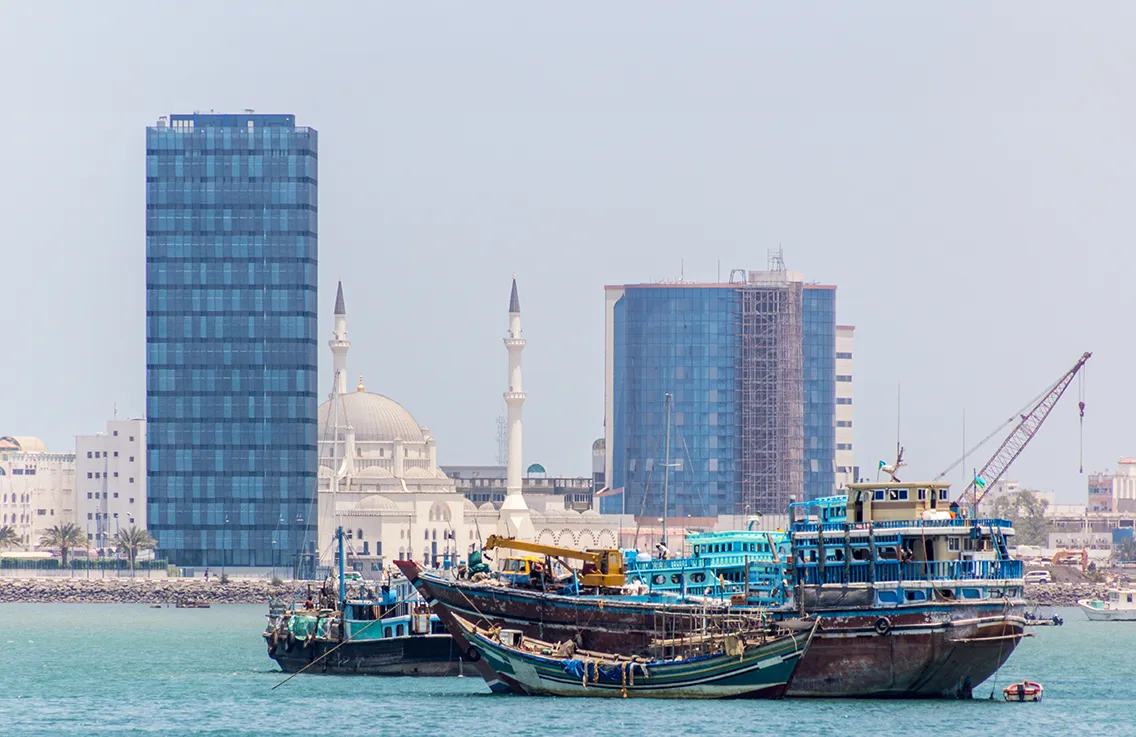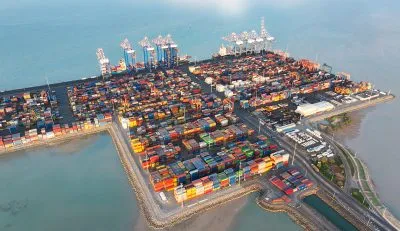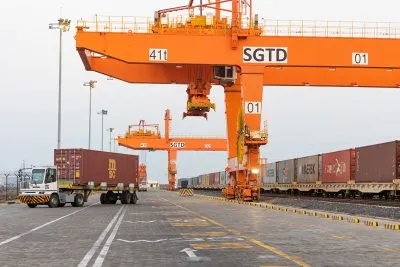Long gone are the days when Djibouti had only two banks sharing the market with no real competition. In two decades, the banking landscape has changed dramatically: 12 institutions are now operating, and two new ones – an Egyptian bank (Misr) and an Australian one – are preparing to set up.
This transformation has taken place gradually, driven by a series of reforms which began in 2004-2005. “Thanks to these reforms and to Djibouti’s economic performance, banking activity has boomed,” says Ahmed Osman Ali, governor of the Central Bank.
The financial sector has attracted investors from various nationalities, including French, Ethiopian, Moroccan, Chinese, Bahraini and Yemeni. “The banking market is booming. There is still room for new players in a country where economic growth fluctuates between 6% and 7%. A remarkable rate in the global context,” says Slim Feriani, CEO of the Djibouti Sovereign Wealth Fund (FSD).
This banking boom is based on a clear strategy and economic choices, designed to make Djibouti an attractive financial centre. Measures include the modernisation of the regulatory framework, the absence of exchange controls and, above all, the pegging of the local currency, the Djibouti franc, to the dollar since 1949. Under a currency board system, each franc in circulation is backed by an equivalent reserve in dollars. “This guarantees a monetary stability that is rare in Africa, with total convertibility that secures international transactions,” says a banking sector executive.
However Abdallah Ibrahim Abdallah, deputy CEO of the Bank for Trade and Industry – Red Sea (BCIMR) contends that “unlike other systems, the Central Bank of Djibouti cannot intervene as a lender of last resort for financial institutions. Without an interbank market, banks must secure large reserves of liquidity rather than injecting them into the economy. This constraint limits the granting of credit and hinders the circulation of capital.”
Over the first three quarters of 2024, banking assets grew by 16.3%, driven by an increase in loans. The rate of access to banking services is following the same trend: “It has risen from 7% in 2005 to 32% today,” says Ahmed Osman Ali; an increase, largely stimulated by the growth of Islamic finance.
Introducing Islamic finance
Since the introduction of Islamic finance in 2006, three fully-fledged Islamic banks: Saba African Bank, Salaam Bank and East Africa Bank, have quickly established themselves. “They meet a specific need: a large part of the population (98%) is Muslim and prefers to avoid banking products involving interest rates, for the sake of Sharia compliance. Today, these banks represent around 20% of the banking market,” explains Ali Daoud Houmed, director of the Djibouti Economic Development Fund. In addition, they inject liquidity into sectors often neglected by traditional banks.
Unlike traditional institutions, these banks invest directly in strategic sectors such as real estate or insurance. “They combine the roles of banks and economic operators, which distinguishes them from conventional banks,” says a banker.
To make financial services more accessible to the population, microfinance is structured around cooperative models with more flexible conditions for opening an account. In the same vein, a presidential decree now requires companies to pay any salary over 40,000 Djibouti francs ($225) via a bank account, a measure intended to gradually bring workers in the informal sector into the banking system.
International financial hub
Rachid Muremangingo, CEO of Bank of Africa Mer Rouge, says “Djibouti has what it takes to become an international financial hub. Its monetary, political and security stability makes it possible to envisage ambitious development plans. The country’s strategic position and modern port infrastructure also enhance its attractiveness.” However, he cautions that investment in training is essential if the workforce is to increase its skills and keep pace with this expansion.
To achieve its aims, Djibouti will have to meet several expectations, particularly in terms of financial institutions. “We need to develop a stock market and a bond market, while encouraging the creation of investment funds,” argues Slim Feriani. “With the FSD, we have launched the first crowdfunding platform, but we need to go further,” he says.
The other critical issue is compliance with international standards. In November 2024, Djibouti concluded its mutual evaluation by the Middle East and North Africa Financial Action Task Force (MENA FATF), which is designed to measure its effectiveness in AML/CFT – the fight against money laundering and the financing of terrorism).
In order to guarantee full compliance with international standards, Djibouti has stepped up its financial supervision.
Six technical subcommittees have been set up and a new strategy to combat organised crime, corruption and terrorism has been adopted, with the aim of full alignment with Financial Action Task Force (FATF) requirements by the end of 2024.
Djibouti, a springboard for East Africa?
With its stable banking framework, the country is positioned as an entry point for banks wishing to establish themselves in the Horn of Africa, and more broadly in East Africa.
In fact, the progressive liberalisation of the banking sector in Ethiopia offers a new opportunity for Djibouti, which could capture a share of the financial market of its neighbour with 1320m inhabitants. “There is a direct link between the Djiboutian and Ethiopian economies. The point of convergence is Djibouti,” observes Muremangingo of Bank of Africa Mer Rouge.
However, that is a double-edged relationship: “If the Ethiopian economy slows down or its stability is weakened, Djibouti immediately feels the impact,” notes an industry executive. In addition, the country must overcome other external challenges, such as the war in Ukraine, which has disrupted markets, or the Houthi attacks in the Red Sea, which are lengthening the time it takes to transport goods.
“All of this has a direct impact on our customers: costs are rising, uncertainty is weighing on supplies and traders now have to build up safety stocks,” notes this observer.
In its quest to become an East African financial hub, like Singapore in Asia, Djibouti has laid a solid foundation. But attracting banks is no longer enough, emphasises Abdallah of BCIMR: “Regional and multinational companies need to set up and finance themselves in Djibouti and raise capital there.”
Want to continue reading? Subscribe today.
You've read all your free articles for this month! Subscribe now to enjoy full access to our content.
Digital Monthly
£8.00 / month
Receive full unlimited access to our articles, opinions, podcasts and more.
Digital Yearly
£70.00 / year
Our best value offer - save £26 and gain access to all of our digital content for an entire year!

 Sign in with Google
Sign in with Google 



